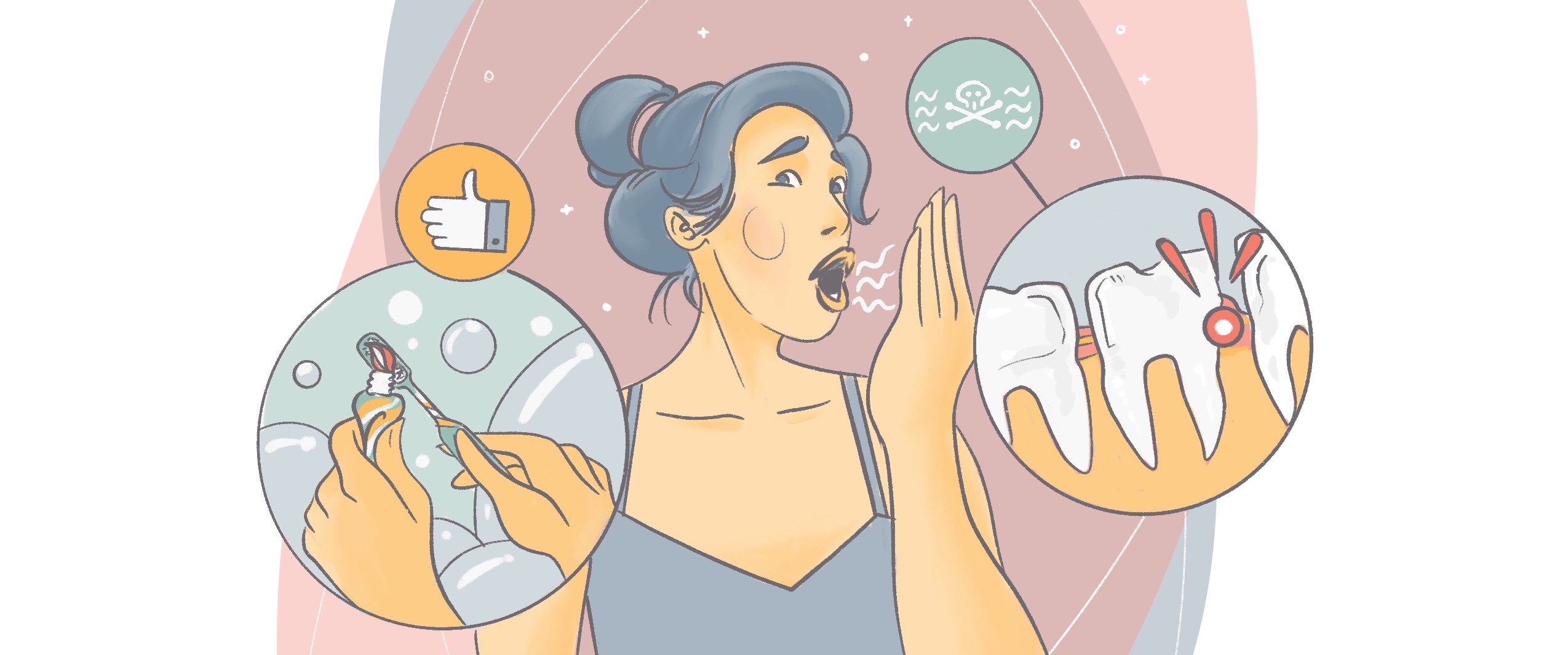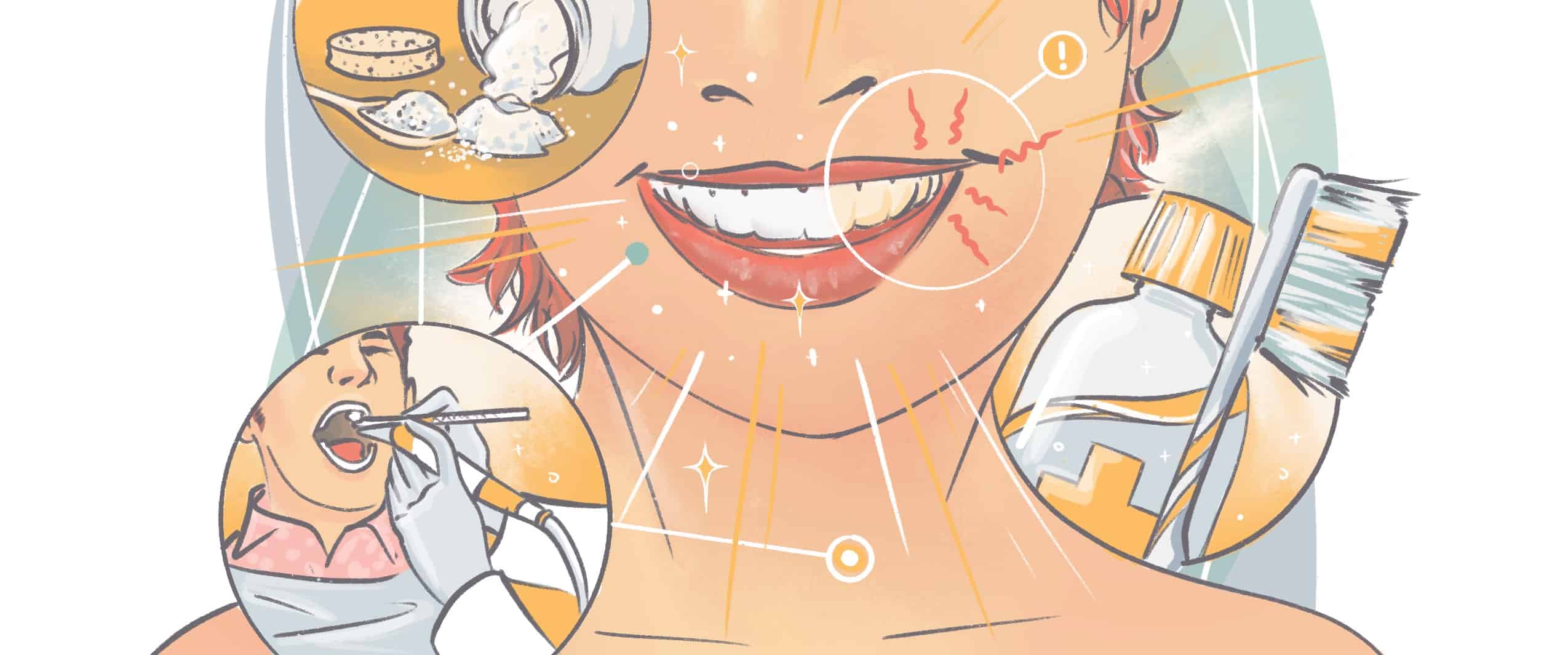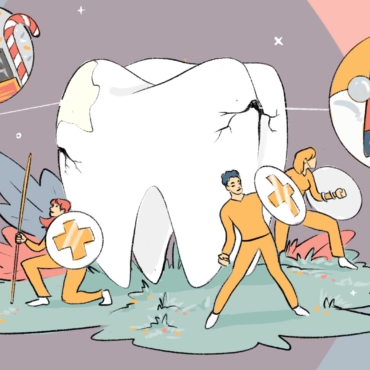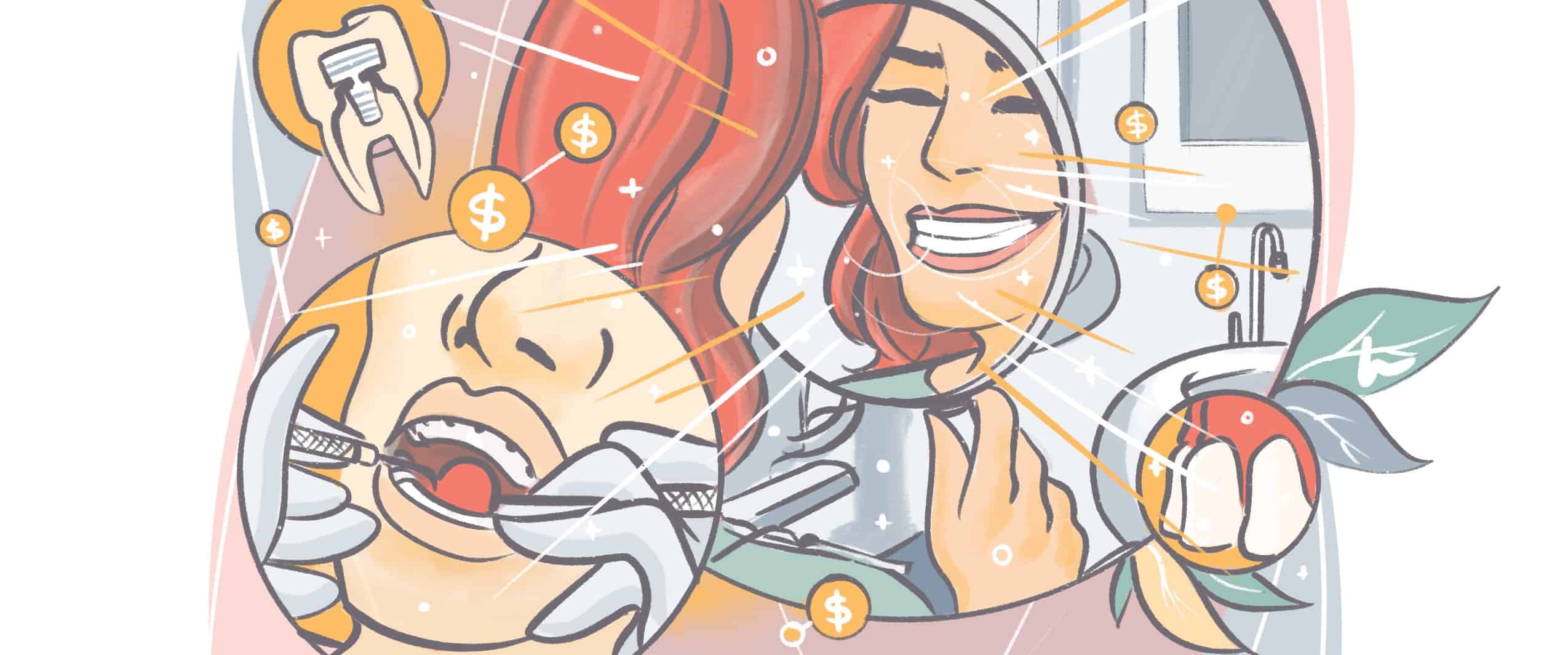Updated June 2021
What causes bad breath? How do you treat it? We’ve got a secret for you: the best solution to bad breath is preventative oral healthcare.
Bad breath matters to all of us. And whether you’re hanging out with your friends, ordering a pizza from your local takeaway joint, or entering an important meeting with your manager, the last thing you want to worry about is your breath. Let’s discuss.
Think you’re suffering from bad breath?
If you have bad breath, you might not notice it and that’s the scariest part. But don’t worry, you’re not alone. Don’t believe us? It’s in the numbers.
- Nearly 60 million people will suffer from chronic halitosis (bad breath) in the United States
- Bad breath is the third most common reason patients visit the dentist
- Between 35-40% of people worldwide likely have bad breath
- Americans spend over $10 billion each year on oral hygiene products (i.e. gums, mouthwashes, toothpastes, etc.) to fight against bad breath
- Bad breath sufferers are 60% more likely to suffer from stress than non-sufferers
- 57% of bad breath sufferers report feelings of depression because of their problem
So don’t worry, you’re not alone. Having bad breath is typically normal. However, good oral hygiene practices and regular dentist checkups are your best first step at fighting bad breath.
We reward you for going to your dental checkup!
What causes bad breath?
Bad breath is a self-explanatory term, isn’t it? It’s also called halitosis and here’s a list of some common causes of halitosis that you should consider:
- Problems with your dental health can be a major contributing factor. This can include gum disease, like periodontitis. Cavities are also a known contributor.
- Dry socket (alveolar osteitis) can also cause bad breath. This condition is common after teeth removal.
- Poor oral hygiene – If you don’t brush your teeth well, plaque can accumulate. In addition, you’ll also have food stuck between your teeth that can rot over time. The numerous bacteria in plaque combined with the rotting bits of food in your mouth cause the unpleasant odor.
- Infections in your mouth can lead to bad breath too, due to bacteria build-up.
- Infections in your nasal cavity or throat.
- Tonsil stones (calcium build up in your tonsils).
- Dry mouth, which can be caused by any number of factors.
- Poor diet and nutrition (crash dieting, fatty foods, processed foods)
- People who smoke tobacco can suffer from halitosis too. Tobacco products make your mouth dry. It also leaves behind an unpleasant odor in your mouth.
Sign up for our newsletter.
Just let us know a bit about yourself.
There are health conditions that contribute to bad breath too. Some of these include:
- Gastric reflux
- Kidney disease
- Liver disease
- Diabetes
How to get rid of bad breath
Freshening your breath starts with good oral hygiene steps — and these are super-important! They include:
- Brushing twice a day
- Flossing
- Using a high-quality mouth rinse
- Cleaning your tongue with a scraper
- Regular dentist visits to identify any preventative oral issues in their early stage
- Do not smoke
- Make sure you’re eating a complete and nutritious diet
- Visit your doctor yearly for an exam to make sure there are no underlying systemic conditions present, such as kidney disease, diabetes, gastric reflux,and etc.
- Stay hydrated – drink plenty of water and avoid dehydrating liquids such as tea, coffee and alcohol
Follow these steps and, over time, you may find your breath smells better for longer.
Sometimes, however, even with a daily dental hygiene routine, you may still find that breath smells bad. In this case, it’s time to look at underlying causes.
Identifying the cause behind halitosis is an important step. Keeping mints with you will only give you temporary relief. The underlying problem needs to be addressed, or you will continue to experience chronic halitosis.
Due for a checkup?
Find a top rated dentist near you that takes your insurance.
Dental hygiene is a process that includes many different factors, all working together to help keep your mouth and body healthy.
When an underlying cause is leading to halitosis, the signs may develop gradually. You may find “morning breath” remains even after you brush your teeth. By the end of the day, you had to brush your teeth three times to keep your breath fresh.
This is only the start. Without catching the cause early on, you could go on to develop a chronic problem with your breath.
Dentists are experienced in identifying the common problem with your teeth, gums, and other parts of your mouth. And when you find a dentist for an examination, they can give you an indication of these diseases, even at earlier stages.
Regular dentist visits are important to treat bad breath
People often skip out on dentist appointments for lots of reasons. Some feel they don’t have the time; others are simply fearful. But when it comes to finding a dentist near you, it’s important to remember dentists aren’t just there to fix a toothache. They play key roles in preventing disease.
Halitosis often stems from oral conditions that can be prevented and caught early by your dentist. If you are continuing to experience bad breath despite having a regular oral hygiene routine, visit a dentist to help diagnose the cause.
Conclusion
Bad breath is unpleasant – for you and those around you. It can cause disruptions in conversations and eventually lead to self-esteem issues. There are treatments available to help fight against bad breath. But prevention is the best solution! And regular visits to your dentist are something you should never avoid.









